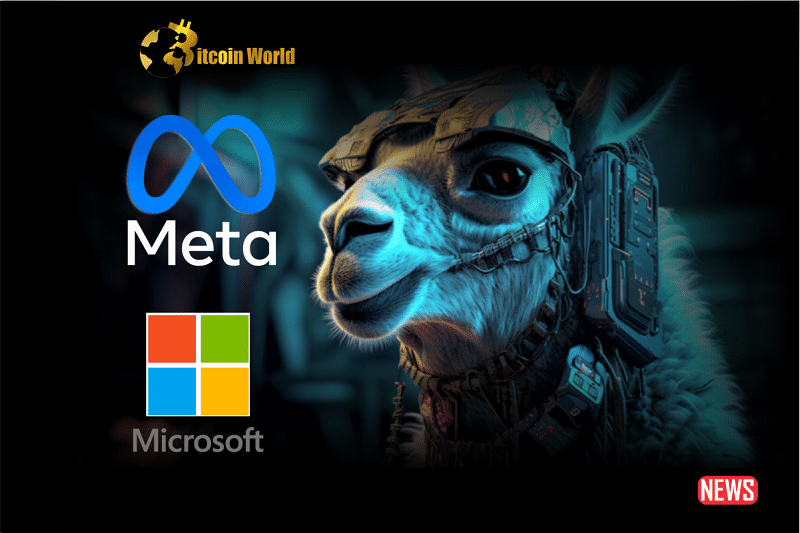
Tech giants Meta and Microsoft have joined forces to introduce Llama 2, an open-source large language model developed by Meta that will be integrated into Microsoft’s Windows operating system and Azure cloud computing platform. The collaboration, announced on July 18, enables the free use of Llama 2 for research and commercial purposes, with optimization tailored explicitly for Windows environments.
Llama 2 was designed to cater to the needs of businesses and researchers seeking to develop applications using Meta’s AI technology stack. Meta claims that Llama 2 has been trained on 40% more publicly available online data sources than its predecessor, Llama 1, allowing it to process twice as much context. The company asserts that Llama 2 surpasses many competing open-source large language models in terms of coding proficiency, reasoning abilities, and performance on knowledge tests. However, as stated in one of its research papers, Meta acknowledges that it may not be as efficient as closed-source competitors like OpenAI’s GPT-4.
In a July 18 Instagram post, Meta CEO Mark Zuckerberg expressed enthusiasm for Llama 2, highlighting its potential for researchers and businesses to leverage the next generation of large language models as the foundation for their work.
Meta expressed surprise at the overwhelming demand for Llama 1 following the limited release of its initial version in February. The model received over 100,000 access requests and was subsequently leaked online by a user on the imageboard website 4chan. However, according to a February Reuters report, Llama 1’s figures pale compared to the estimated 100 million or more users who signed up for ChatGPT within the first three months.
With this partnership, Microsoft now supports two major players in the AI space, having invested a cumulative $13 million in OpenAI throughout 2023, as reported by Fortune in January.
Meta’s decision to open source Llama received criticism from two United States senators in June, who expressed concerns about the potential vulnerabilities and limited protections in the initial version, which they feared could enable malicious users to engage in criminal activities.
The post Meta and Microsoft Launch Open-source AI Model Llama 2 appeared first on BitcoinWorld.














